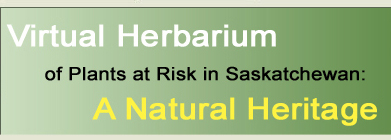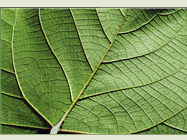
|

|

|

|

|

|

|
|
|
|
|
|
| Laportea canadensis (L.) Weddell | Species Image Gallery (opens in a new window) |
||||||||||||||
| TAXONOMY | |||||||||||||||
| Family: | Urticaceae | ||||||||||||||
| Genus: | Laportea | ||||||||||||||
| Species Synonyms: | Urtica canadensis L. Urticastrum divaricatum (L.) Kuntze |
||||||||||||||
| Common Names: | Canada wood-nettle | ||||||||||||||
| DISTRIBUTION | |||||||||||||||
| Canada: | southeastern Saskatchewan – southern Manitoba – Ontario – Quebec – New Brunswick – Nova Scotia | ||||||||||||||
| Saskatchewan: | southeastern Saskatchewan; Souris River Valley | ||||||||||||||
| Ecoregion: | Moist Mixed Grassland, Aspen Parkland | ||||||||||||||
| HABITAT | |||||||||||||||
| Saskatchewan: | moist, shaded, river floodplains in deciduous woods | ||||||||||||||
| Associated Species: | Assiniboia sedge, common yellow oxalis, mad dog skullcap, long-beak sedge, stinging nettle, wild mint | ||||||||||||||
| RARITY STATUS | |||||||||||||||
| Provincial
Status According to Harms (2003): |
Threatened |
||||||||||||||
| Nature Conservancy Status: | G5 S2 |
||||||||||||||
| Saskatchewan
Species at Risk Status: |
None |
||||||||||||||
| COSEWIC Status: | None |
||||||||||||||
| Canada wood-nettle is threatened because it is rare or uncommon in Saskatchewan. This species is regionally restricted to the southeastern corner of the province. Possible threats are inferred by occurrences in heavy populated areas, fragile habitats, or occurrence in areas of possible planned developments. | |||||||||||||||
| SPECIES DESCRIPTION | |||||||||||||||
| Height: | 30 – 150 cm | ||||||||||||||
| Roots: | roots tuberous; rhizomes present | ||||||||||||||
| Stems: | perennial, stinging and non-stinging hairs present, stalked-glandular hairs absent | ||||||||||||||
| Leaves: | alternate, long-stalked, blades 6 – 30 cm long, 3 – 20 cm wide, narrowly to broadly oval, base rounded to wedge-shaped, tip tapered to a long point, margin saw-toothed | ||||||||||||||
| Inflorescence: | clusters of flowers arranged into larger branched clusters, male and female flowers on the same plant but in separate clusters, lower clusters male-flowered, upper clusters female-flowered | ||||||||||||||
| Flowers: | male flowers with tepals 5, stamens 5, filaments slightly longer than tepals; female flowers with tepals 2 – 4, ovary compressed and nearly round, style 3 – 4 mm, persistent and feathery | ||||||||||||||
| Fruits: | single-seeded, strongly compressed, round, not enclosed in sepals | ||||||||||||||
| |||||||||||||||